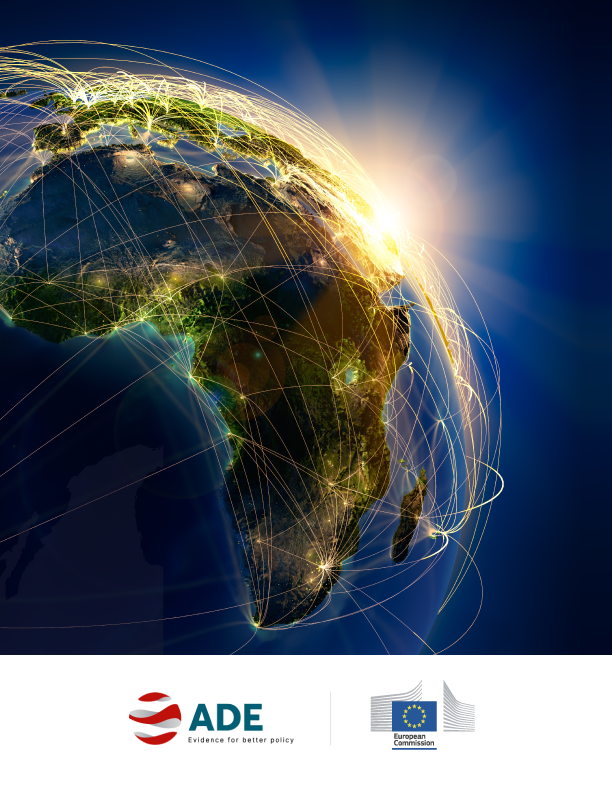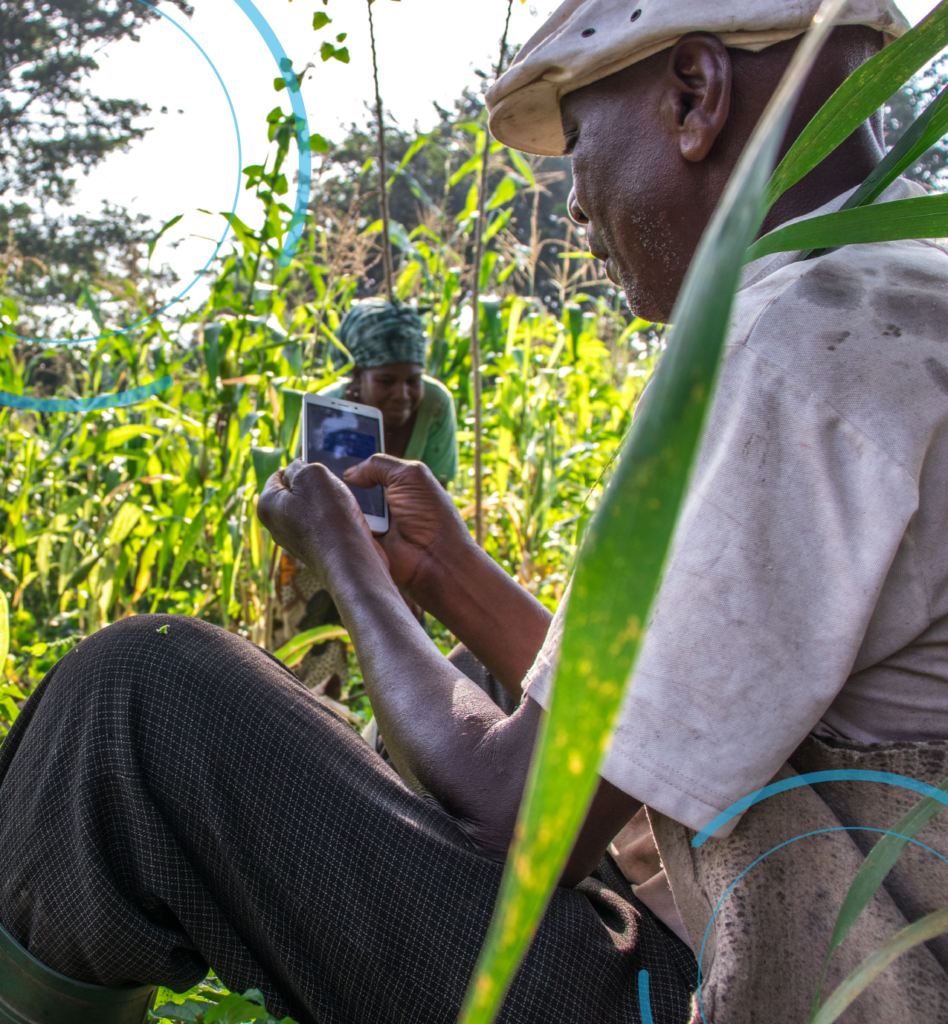Togo
9.3
Population 2023 (Millions)
0.5
HDI Score
2022 (Max. 1)
58.4
SDG Score
2023
(Max. 100)
0.6
Gender Inequality
Index Score
(Max. 1)
N/A
Internet Inclusivity
Index 2022
(100 countries)
Overview
Projects

- Central African Republic, Eswatini, European Union, Ghana, Ivory Coast, Madagascar, Mali, Mozambique, Rwanda, Sierra Leone, Sub-Saharan Africa (SSA), Togo
- January - May 2020
- Just Digital Transformations
- Partner(s): ADE (Funder), EU DEVCO
This study, produced in collaboration with ADE, assessed the European Union’s external cooperation for development (DEVCO, now INTPA) in the cross-cutting field of digitalization in Sub-Saharan Africa (SSA), with a view to issuing a series of lessons learned and recommendations to inform current and future cooperation work. In particular, this evaluation focuses on understanding and analyzing DEVCO’s investments and projects in the region, the extent to which these projects are strategically promoting the pillars, objectives and values of the EU frameworks, and to identify complementarities or lack thereof with other relevant national, regional, and international stakeholders.

- Sub-Saharan Africa (SSA), Togo
- November 2018 - February 2019
- Just Digital Transformations
- Partner(s): UNDP Togo (Funder)
Data-Pop Alliance (DPA) provided technical assistance to the United Nations Development Programme (UNDP) Togo Country Office (CO) to support its efforts to leverage open and Big Data for the country’s development, including SDG monitoring and promotion. The proposed consultancy aimed to advance the state of knowledge, know-how, awareness, and capacities to harness the potential of Open Data and Big Data in Togo. The project was expected to contribute to the recognition of the importance of data, ensuring that access and analysis of personal data did not infringe on people’s privacy, safety, and agency.

- Sub-Saharan Africa (SSA), Togo
- May - November 2020
- Resilient Livelihoods and Ecosystems
- Partner(s): ADE (Funder), UNDP Togo (Funder)
In order to identify the impacts of the COVID-19 pandemic in Togo, in partnership with the United Nations Development Programme (UNDP) and ADE, Data-Pop Alliance offered a synthetic analysis of the main impacts of the crisis in the country with a focus on the sector’s development priorities before the pandemic, using the most recent analyzes, studies and more recent data. The aim was to examine both quantitative and qualitative data available from the country; focusing on economy (SMEs and informal sector), social protection, basic services, food security; all with a transversal gender perspective. Particularly, the project’s report examined the situation before COVID-19 and identified its main effects and impacts; examined the content and conclusions of studies carried out on the impact of COVID-19, and raised the limits and/or potential deviations; analyzed how the limits in classical data can be complemented by data from alternative sources.
To read the report, click the button below (Available in French)
DownloadThe second part of this project focused specifically on conducting a mobility analysis during the COVID-19 pandemic in Togo. During this crisis, the Togolese government decided to introduce mobility restriction measures to prevent the spread of the virus. The resulting analysis used innovative data sources to characterize the changes in mobility patterns that followed the introduction of these measures. In this case, mobility data from Google and Facebook was used to measure changes during and after the implementation of mobility restrictions between February 15 and August 9, 2020, in each of the regions in Togo. In general, this study aimed to:
(1) Characterize the changes in mobility over time by type of mobility, particularly in residential areas and towards workplaces;
(2) Present the changes in mobility that resulted after curfew relief and lifting; and
(3) Understand mobility interconnections between regions. Limitations, assumptions, and recommendations were formulated based on the observations.
To read the report, click the button below (Available in French)
Download